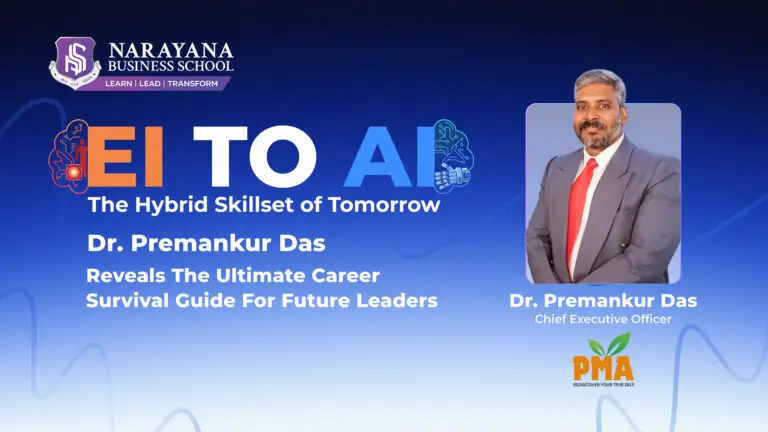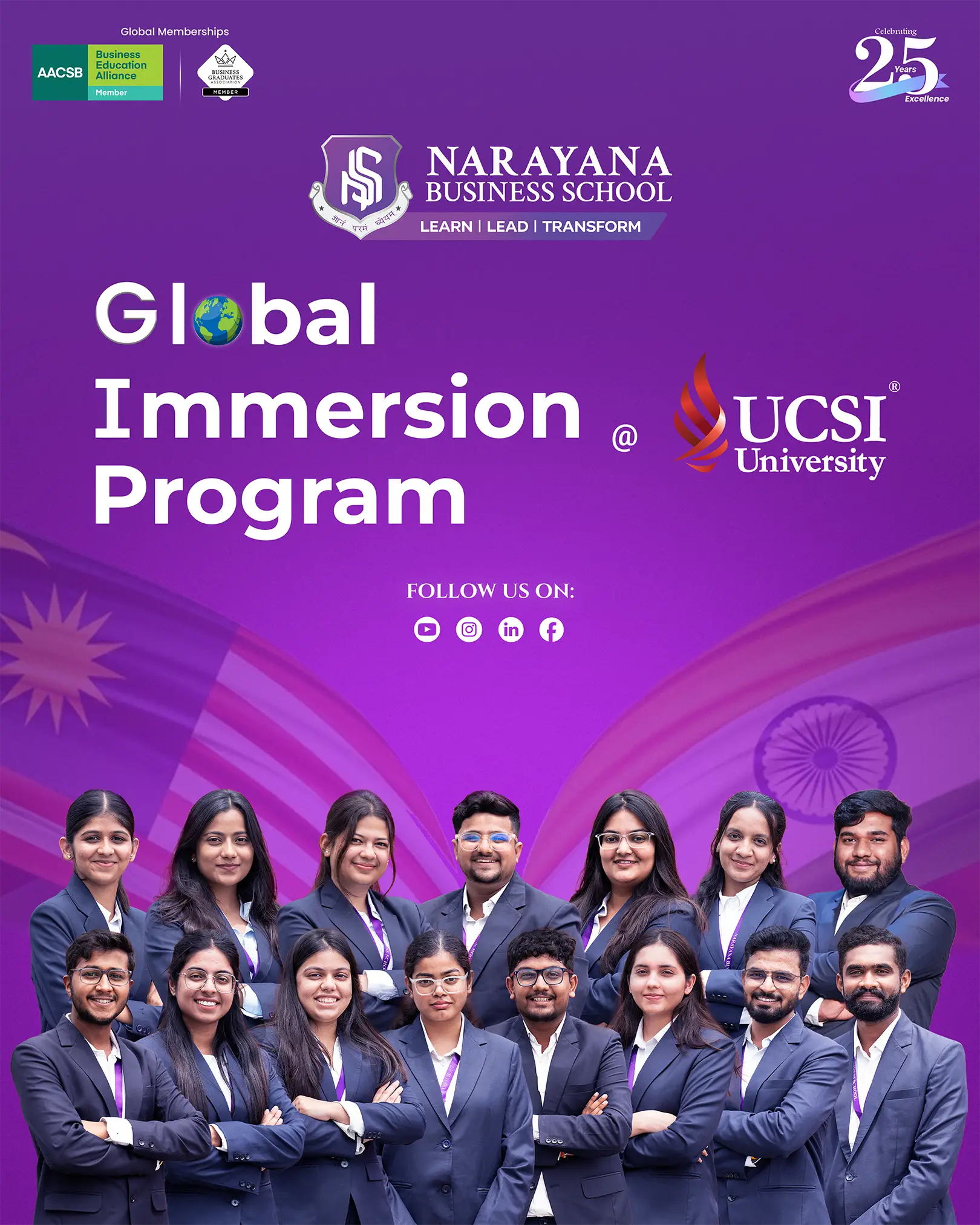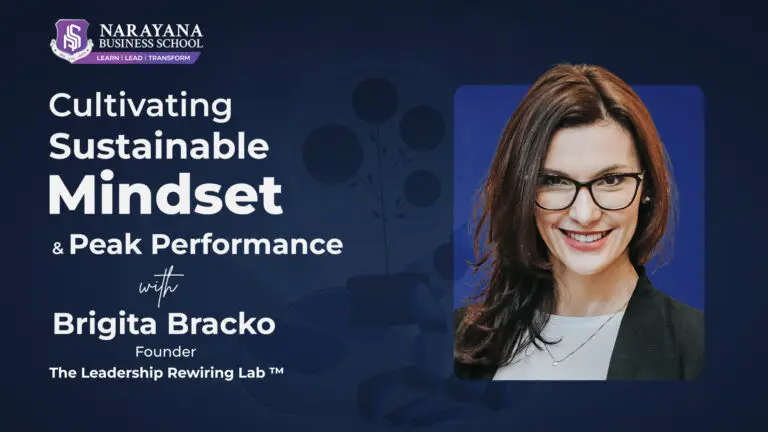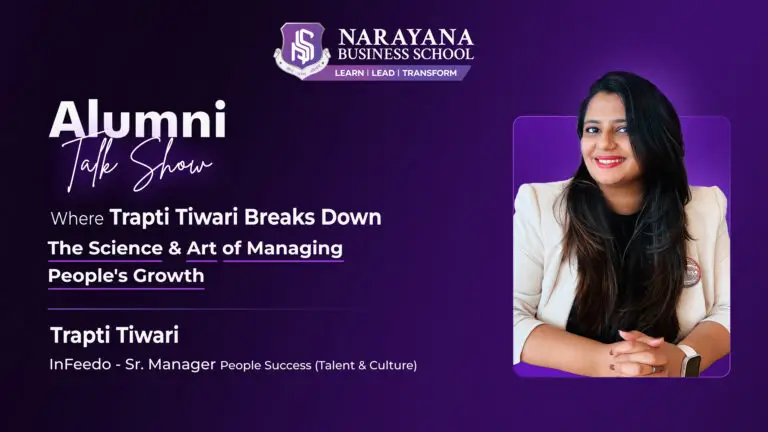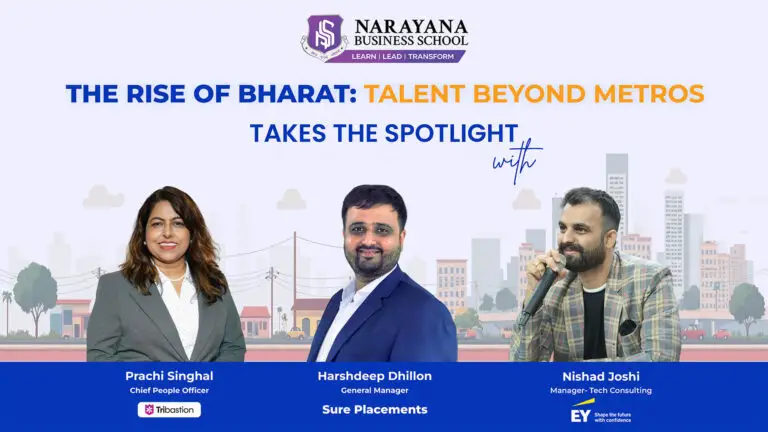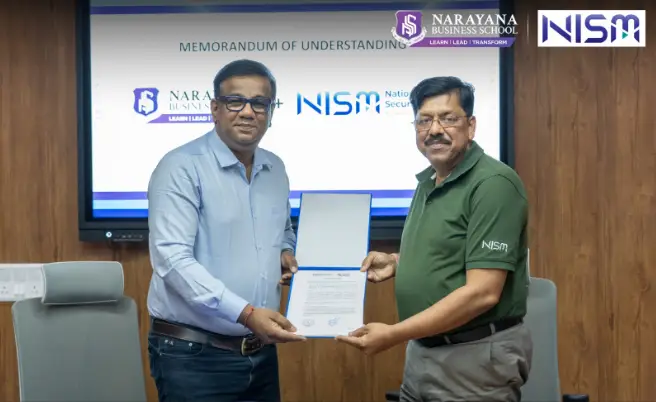7th June, 2025 – Even prehistorically, what is that one thing that separated humans from other living species? Yes, that’s emotional intelligence. So why wouldn’t it be true today? We are living at the cusp of a major AI revolution, which has already become a part of our daily lives, making information quick and accessible, automating routine tasks and to some extent, even setting our alarm clocks.
Every mass major adoption of technology comes with its sidekicks of non-ethical uses and over dependency. Before the ship sails further, it is imperative for us as humans to make full ethical use of the technology, leverage its potential, and make lives easier as they should be.With AI getting super realistic with its responses, creativity and expertise, the rising question of whether it will replace humans continues to buzz our ears. The reality is that it can’t, and the reason is emotional intelligence.
Our EQ, EI and our experiences are what separates us from machines and their coded outputs. Yes, the line is blurry today, but ask yourself, will it be the same 10 years from now? No. The future will be AI, and emotional intelligence will be importance as its importance today more than ever.
As a B school and a 100% digital campus, we at Narayana Business School encourage the use of AI but ethically. To understand these blurry lines and where the future is headed, we invited Dr. Premankur Das – CEO at PMAEDU, Tedx Speaker, and the Author of the bestselling book: EI to AI: Mankind Redefined.
He opened the live webinar stating that, “this conversation is very timely, it is important to understand this journey of EI to AI now, and I am happy to be speaking in front of NBSians”
The Crisis Is Already Here: Major Companies Are Cutting Deep
The numbers are staggering, and the timeline is terrifyingly short. Dr. Das pointed to recent massive layoffs that signal the beginning of what he calls “the great job displacement.” Nissan has eliminated 11,000 positions. Procter & Gamble cut 7,000 roles. These are strategic pivots toward “smarter solutions” that don’t require traditional human workers.
“Organizations are finding that it’s easier and cheaper to give jobs to AI rather than humans,” Das explained during the webinar. “The business pattern is fundamentally changing, and that’s where my concern lies.”
The data becomes even more alarming when you consider the scope of displacement already happening. In the technology sector alone, 78,000 professionals have become jobless in just the past three years. It’s happening right now, accelerated by pandemic-induced work-from-home policies that have already conditioned companies to operate with reduced human interaction.
But here’s the twist that caught everyone’s attention: while the global average salary increases hovers at a measly 3.5%, professionals who have developed hybrid EI-AI skills are commanding 9% salary growth. The message is clear, adapt or become obsolete. Here the top 10 high demand jobs of 2025.
About The Speaker:
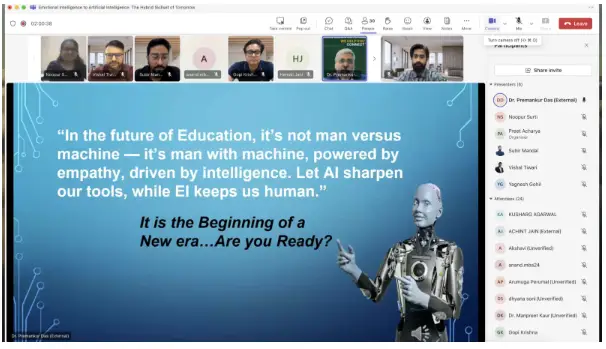
Dr. Premankur Das didn’t start as a management guru. Originally trained as an engineer, he discovered his true calling lay in human interaction and transformation. “I love talking to people and changing their lives,” Das shared. “I realized that emotional requirements weren’t being addressed properly, and that’s where the real opportunity lies.”
His journey from technical professional to bestselling author mirrors the career pivot many young professionals need to make. His book “EI to AI: Mankind Redefined” became an Amazon bestseller within 20 days, selling 7,600 copies in its first three weeks and crossing 48,000 copies to date. But what started as a book has evolved into something much bigger, a much need movement that’s caught the attention of tech giants and academic institutions alike.
Google has called upon Das to collaborate on groundbreaking research. He’s partnering with the London School of Business on cutting-edge studies. Most remarkably, he’s launching the world’s first EI bot in Bengaluru which is a revolutionary tool he calls “Super HR” that combines emotional intelligence with artificial intelligence to solve real-world business problems.
Why Language Models Rule the AI World (And What It Means for You)
During the webinar, Das addressed a fundamental question that most young professionals miss: why are all major AI systems based on Large Language Models (LLMs) rather than pure coding models? The answer reveals everything about where careers are headed.
“If we go back to the initial days, the first and foremost thing we use is language,” Das explained. “It’s the signs, the first piece to set up anything. Language is the easiest way to communicate with people. If we can break the language barrier, it becomes easier to absorb and process information.”
This is career intelligence. AI systems like ChatGPT became sophisticated precisely because they learned to mimic human-like thinking and communication patterns. They’re essentially copying our emotions and learning from our interactions. As Das puts it, “We are the apprentice here, and the master chef is emotions. AI is learning from us because we’re constantly using it and making it better.”
But here’s the critical insight: while AI learns from our emotions, it can’t genuinely understand them. It’s creating what Das calls “fake empathy”, responses that seem emotionally intelligent but lack genuine human understanding.
The Dangerous Path Most People Are Taking
The webinar revealed a troubling trend among young professionals: they’re becoming emotionally dependent on AI for even basic human interactions. “People are getting dumb, not relying on emotions anymore,” Das observed. “For every short emotion, they ask AI.”
This creates a dangerous cycle. People use AI to handle emotional situations, which trains the AI to be better at mimicking emotions, which makes people even more dependent on AI for emotional guidance. It’s like learning to drive in a fully automated car, you think you’re learning, but you’re actually becoming helpless.
Das shared a powerful analogy: “It’s like a driverless car. If the car stops and needs an override, how will you handle it if you don’t know anything about driving? Unless you master the skill yourself, you’re doomed.”
The EI To AI Framework – Your Career Survival Guide
Dr. Das’s revolutionary “EI to AI” framework isn’t just theory, it’s a practical roadmap for career survival and success. The framework rests on four fundamental pillars that every young professional must master:
Self-Awareness Before Automation:
You cannot effectively collaborate with AI if you don’t understand your own emotional patterns and responses. Das emphasizes that emotions are deeply personal, and when you bind them to a machine, you’re essentially creating patterns that the AI can learn from. If you don’t understand these patterns yourself, you’re training AI poorly.
Empathy Over Efficiency:
While AI can process information faster than humans, it cannot genuinely empathize. Real human connection, the kind that builds trust, resolves conflicts, and creates lasting relationships which cannot be replicated by machines. This is where human professionals will always have an edge.
Override Capability:
Just as a pilot must know how to fly manually even in an automated aircraft, professionals must maintain the ability to step in when AI fails. “Till the time you do not master the skill yourself, you’re just giving commands,” Das warns. “In the long run, this will be fatal.”
Pattern Recognition:
Understanding how emotions translate into data patterns that AI can learn from is crucial. This involves recognizing when AI responses are appropriate and when human intervention is necessary.
AI’s Future Ubiquity
After five years from now, people will not talk about AI anywhere because it will be everywhere. Do we talk about the internet now? No, because it’s everywhere.
This means the current conversation about “AI skills” is actually misleading. By 2027, basic AI interaction will be as fundamental as using email or browsing the internet. The real differentiator will be emotional intelligence, the uniquely human capability that AI can mimic but never truly possess.
This perspective completely reframes career planning for young professionals. Instead of focusing on learning specific AI tools (which will become commoditized), the focus should be on developing emotional intelligence capabilities that can effectively guide and collaborate with AI systems.
The Skills Redefinition: What’s Coming
The webinar revealed that by 2027, 13% of current skills will be completely redefined. Not replaced but redefined. What this means is that the fundamental doings of that particular job might change while weaving better results.
The professionals who thrive will be those who can navigate this transition by maintaining their human emotional intelligence while effectively leveraging AI capabilities. As India currently has the highest AI adoption rate globally, which clearly indicates that the young Bharat is already at the forefront of it but needs to navigate it mindfully.
The goal isn’t to become more efficient at using AI, it’s to become more effective at collaborating with AI while maintaining distinctly human capabilities.
Das referenced the Bhagavad Gita’s teachings about emotional strength and self-mastery, emphasizing that technological advancement without emotional development leads to dependency rather than empowerment. “We cannot learn emotions from a machine,” he stressed. “You should know how to build up emotions and sharpen your emotional intelligence.”
The Action Plan: Starting Today
For young professionals ready to future-proof their careers, Das provided specific guidance:
For College Students:
Don’t just learn to use AI tools, learn to understand when and why they work. Develop emotional intelligence alongside technical skills. Seek courses and experiences that combine human psychology with technology applications.
For Early-Career Professionals:
Conduct an honest audit of your current role. Identify which aspects require genuine human emotional intelligence and which could be enhanced (not replaced) by AI. Position yourself as the bridge between these two worlds.
For Everyone:
Start treating AI as a sophisticated tool that you guide, not a replacement for your thinking. Master the underlying skills in your field so you can effectively collaborate with AI rather than become dependent on it.
Parting Thoughts: From EI To AI
The webinar’s central message was unambiguous: the next three years will determine who survives the great job displacement and who thrives in the new economy. But unlike previous technological disruptions, this one offers a clear path forward for those willing to take it. The fusion of emotional intelligence and artificial intelligence isn’t just a nice-to-have skill set. it’s the fundamental competency that will define professional success in the post-2027 world.
As Das eloquently concluded with a reference to the poet Ghalib: “Insaniyat kabhi mehengi ho jayega” (Humanity will become precious someday). That someday is now.
The choice facing every young professional is stark but simple: develop the EI-AI hybrid skills that make you irreplaceable, or risk becoming part of the 41% statistic. The window for action is closing fast, but for those who act now, like NBSians who leverage the best opportunities inside a 100% digital campus, and specialized MBA and PGDM programs which makes their career job displacement proof and trains to be in leadership positions.





